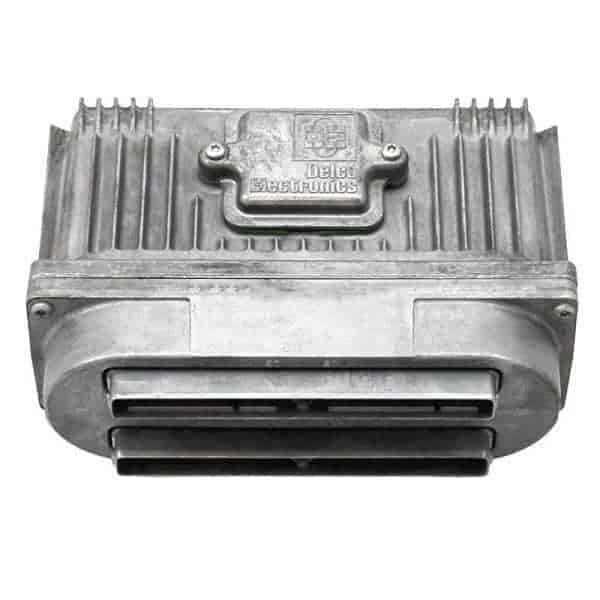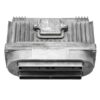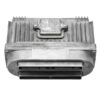Is Your 1996 GM Vehicle Running Rough?
If you’re dealing with frustrating and unpredictable issues like stalling, poor fuel economy, a persistent check engine light, or erratic transmission shifting, the problem might not be a faulty sensor or a bad wire. For many 1996 General Motors vehicles, including the Oldsmobile Cutlass, these are classic signs of a failing Powertrain Control Module (PCM). The PCM is the central computer of your vehicle, responsible for managing everything from fuel injection and ignition timing to transmission shift points and emissions controls. When it starts to fail, it can create a cascade of problems that are often difficult to diagnose.
I remember a 1996 Pontiac Grand Prix that came into the shop a few years back. The owner had spent months and a small fortune replacing the throttle position sensor, the mass airflow sensor, and even the fuel pump. The car would run fine for a day, then suddenly start stalling at red lights and shifting hard between first and second gear. After checking all the wiring and confirming the new parts were good, we hooked up our high-level scanner and found the PCM was intermittently dropping communication. We installed a correctly programmed module, and the car ran like it just rolled off the assembly line. It’s a powerful reminder that the ‘brain’ of the car is often the root cause of the most baffling issues.
Common Symptoms of a Failing 1996 Cutlass PCM
A failing engine computer can manifest in numerous ways. If your vehicle is experiencing any of the following, it’s time to consider the health of your PCM. Keep an eye out for:
- ✔ Check Engine Light: The light may be on constantly, or it may flash intermittently. You might see codes related to multiple different sensors, or a ‘loss of communication’ code.
- ✔ Engine Stalling or Misfiring: The engine may stall for no apparent reason, either while driving or at idle. You might also experience rough idling or engine misfires.
- ✔ Poor Performance & Fuel Economy: A noticeable drop in power, acceleration, and a significant increase in fuel consumption are common indicators of a PCM issue.
- ✔ Transmission Shifting Problems: The PCM also controls automatic transmission functions. A bad module can cause hard shifting, delayed shifting, or getting stuck in one gear (limp mode).
- ✔ No-Start Condition: In severe cases, a complete PCM failure can prevent the engine from starting at all, even though the battery and starter are working correctly. The module may not be firing the injectors or spark plugs.
- ✔ Failed Emissions Test: The PCM is critical for managing your vehicle’s emissions systems. A faulty unit can lead to an automatic failure at the inspection station.
The Direct-Fit Solution: Programmed and Ready to Install
This Powertrain Control Module, part number 16211539, is the definitive solution for your vehicle’s electronic woes. Unlike a generic part from a local store, each module we ship is meticulously programmed to your vehicle’s specific Vehicle Identification Number (VIN). This critical step ensures that the computer has the correct software and calibrations for your exact engine, transmission, and options package. We load the latest updates from GM, which can often resolve operational issues that were present even in the original factory programming. This VIN-specific programming makes installation straightforward, restoring your vehicle’s original performance and reliability.
This module is a direct replacement for service numbers 88963800, 16211539, and 16231853, and it fits a wide array of 1996 GM models, including:
- Buick: Regal, Skylark, Century, LeSabre, Park Avenue, Riviera
- Chevrolet: Lumina (Car & Van), Monte Carlo, Beretta, Corsica
- Oldsmobile: Cutlass, Ciera, Eighty Eight, Ninety Eight, Silhouette, Achieva
- Pontiac: Grand Prix, Grand Am, Bonneville, Trans Sport
Installation is typically a simple bolt-in process. After disconnecting the battery, you’ll unbolt the old module, disconnect the wiring harnesses, and connect the new one. In some cases, a security relearn procedure or a Crankshaft Variation Relearn (CASE) may be required, which can be performed by any qualified technician with a professional scan tool.
Frequently Asked Questions
Why does this PCM need my vehicle’s VIN?
Your VIN is essential because it allows us to load the exact GM-certified software and calibrations for your car’s specific engine, transmission, and factory options. This ensures seamless communication between all vehicle systems and guarantees optimal performance, fuel efficiency, and emissions control, making the installation process as simple as possible.
Is this part difficult to install?
For someone with basic mechanical skills, the physical replacement is straightforward. It typically involves disconnecting the battery, unplugging the electrical connectors, and unbolting the old module. However, some GM vehicles may require a security relearn or CASE relearn procedure after installation, which requires a professional scan tool.
Will this fix my check engine light?
If the check engine light is caused by an internal failure of the original PCM, then yes, this replacement module will resolve the issue. However, if the light is on due to a faulty sensor, bad wiring, or another mechanical problem, you will still need to address that separate issue. This PCM will fix problems originating from the computer itself.
How can I be sure my original PCM is the problem?
While the symptoms listed are strong indicators, it’s always best to have a professional diagnosis. A technician can check for power and ground at the PCM, test sensor inputs, and use a scan tool to check for communication errors. If all other components and wiring check out, the PCM is the most likely culprit.
What other part numbers does this module replace?
This module, 16211539, is a direct replacement for GM service numbers 88963800 and 16231853. It is the correct electronic control module for a wide range of 1996 GM vehicles.


